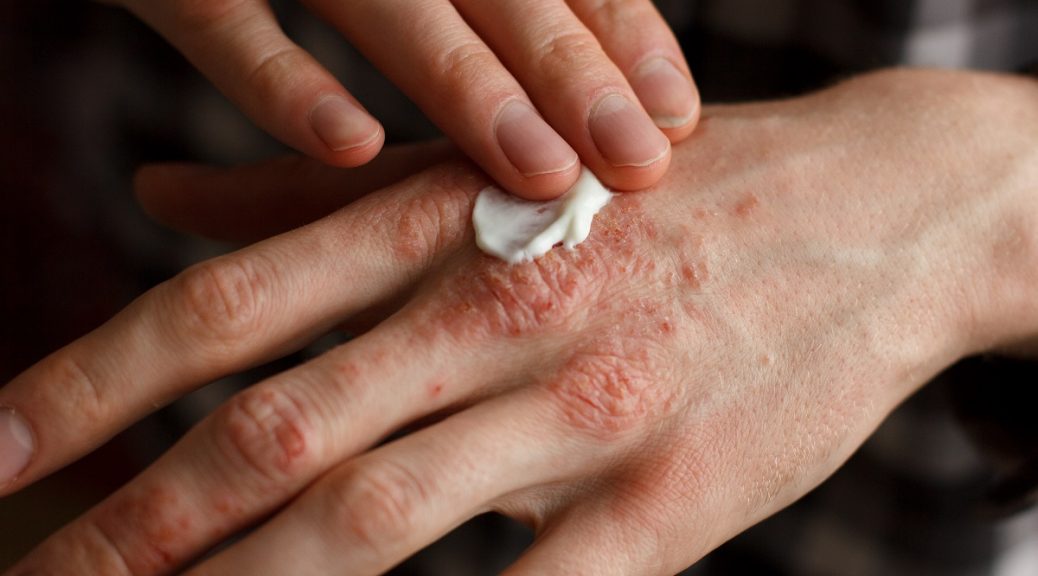
Supplements for Psoriasis
By medical nutritionist Dr Sarah Brewer, an expert in food, herbs and supplements
August is psoriasis awareness month, focusing on an inflammatory skin disease in which new cells are produced around 10 times faster than normal. These skin cells push up to the surface to form characteristic raised, red patches covered with fine, silvery scales that can vary in size from a few millimetres to extensive, plaques covering most of the body.
In some cases, sterile pustules form – usually on the palms and soles. Some people may develop flaky scalp, thickening and pitting of the nails or a form of arthritis known as psoriatic arthropathy.
The exact cause of psoriasis is unknown, but it is not infectious and involves both immune and genetic factors.
Conventional approaches
A variety of topical skin treatments are prescribed to soften dry skin, remove scales, damp down inflammation or slow the production of new skin cells. Creams, lotions or gels are suitable for widespread psoriasis, while ointments helpful for areas of thick scale. Your doctor may prescribe moisturising emollients, vitamin D derivatives (eg calcitriol, tacalcitol) and the vitamin A derivative, tazarotene.
Older treatments such as coal tar extracts and dithranol are still used, but are messier, stain skin and are less pleasant to use. Some forms of psoriasis may be treated with ultraviolet phototherapy, or with oral drugs that affect the immune system and reduce cell division.
Losing any excess weight can reduce psoriasis severity by reducing levels of inflammation in the body. A Mediterranean-style diet that favours fruit, vegetables, wholegrains, nuts, seeds, oily fish and extra virgin olive oil with reduced intake of meat and dairy products appears to be most effective.
If you have psoriasis and experience joint pain or swelling, seek urgent medical advice as this may be a sign of psoriatic arthritis which needs specialist referral and management to protect your joints.
Complementary approaches
Topical skin treatments shown to improve psoriasis include dead sea mineral salts/mud, mahonia ointment (made from the Oregon grape extract), gotu kola and zambesia botanica – a cream made from the African kigelia tree.
Aloe vera gel is noted for its wound healing and anti-itch properties and, in one study, aloe vera gel, applied three times a day, healed over 80 percent of plaques within four weeks compared with only eight percent with placebo.
Fish oils have an anti-inflammatory action that can significantly reduce psoriasis lesions within eight weeks. Itching decreased most rapidly, followed by scaling then redness with over 65 percent of people showing marked improvement.
While vitamin D based topical treatments are effective, there is less evidence for the benefits of taking oral vitamin D supplements. As significant numbers of people in the UK are vitamin D deficient, however, a supplement can help to ensure adequate intakes.
Turmeric provides the antioxidant pigment curcumin, which helps to suppress inflammation by targeting numerous cell pathways. Curcumin has been shown to reduce the proliferation of psoriasis cells by damping down the effects of inflammatory cytokines such as interleukins and TNF-alpha. It also enhanced the skins normal barrier function.
Visit the Psoriasis and Psoriatic Arthritis Alliance website at www.papaa.org for more information and support, especially if you are experiencing stress, anxiety or depression as a result.
A bout Dr Sarah Brewer
bout Dr Sarah Brewer
Dr Sarah Brewer is a medical nutritionist and an expert in food, herbs and supplements. She qualified from Cambridge University with degrees in natural sciences, medicine and surgery. After working in general practice, she gained a master’s degree in nutritional medicine. Sarah is a licensed medical doctor, a registered nutritionist and a registered nutritional therapist.
Subscribe to her newsletter to get a FREE 46-page PDF Do You Need A MultiVitamin? at nutritionupdates.subscribemenow.com.
For more information on diet and supplements, visit Dr Sarah Brewer’s websites at www.DrSarahBrewer.com, www.ExpertHealthReviews.com and www.MyLowerBloodPressure.com.